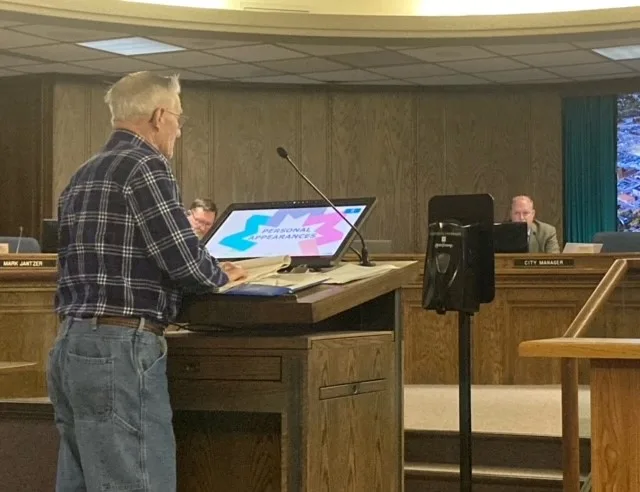

MINOT – A Minot resident sparked a discussion at the Minot City Council Tuesday after he expressed frustration over his neighbors.
Leroy Beyl, Minot, told the City Council he’s had problems where he’s lived since a group home recently moved next door.
“This is a group home for developmentally disabled adults, fully in compliance with the land use laws in the city that allow up to six individuals to live in a group home,” Alderwoman Carrie Evans told Beyl. “It is a goal of our community to have our disabled residents be able to integrate within our neighborhoods and not to segregate. It is unfortunate that you do not appreciate these people.”
“The police department’s up there all the time, they have all kinds of problems,” said Beyl. “That’s not the problem. I have a declaration of protective covenants right here in my deed. It says ‘no lot shall be used except for residential purposes. No building shall be erected, altered, placed, or permitted to remain on any other than the detached single-family dwelling unit.’”
The group home was provided by REM North Dakota, an organization that offers services to adults with intellectual and developmental disabilities.
“This is part of the deinstitutionalization of people with various kinds of disabilities,” said Alderman Stephan Podrygula. “The consensus we had as a society is that people are entitled to as normal a lifestyle as they can. Rather than putting people in large institutions, these are more humane and respectful of their civil rights, their legal rights.”
Alderman Scott Burlingame, also director of an organization that helps those individuals in Minot, said in the early days adults with developmental disabilities were placed in larger homes.
“A lot of them were 12, 16 people,” said Burlingame. “Most of us would not prefer to live with 12, 16 people. We’d rather live with two, three, four, five. As these have gotten smaller, it’s blended into communities in a less restrictive way, and that’s a good thing.”
Burlingame said he hopes deinstitutionalization continues to a point where there can be enough staffing for individuals to live with only those whom they choose.